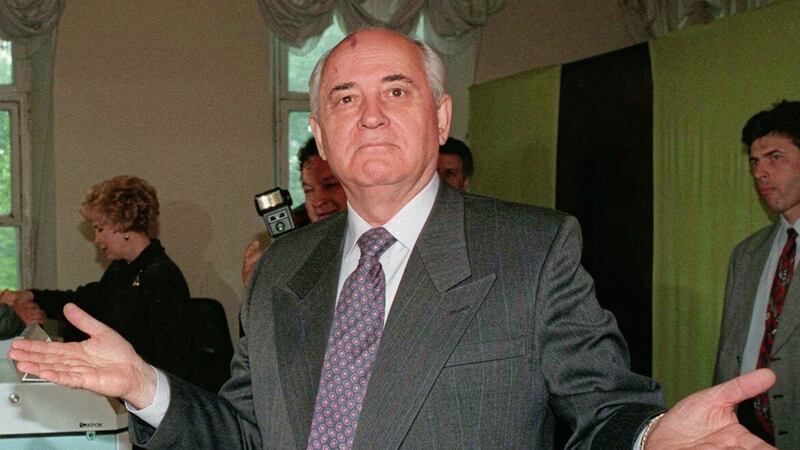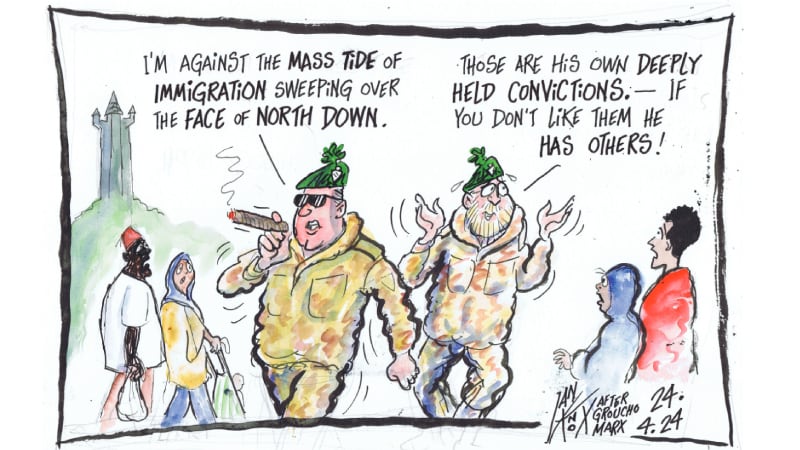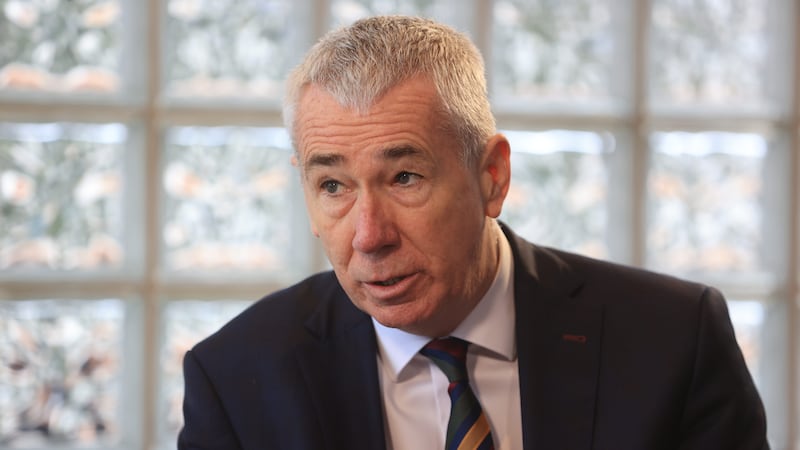Mikhail Gorbachev, “a man we can do business with”. But the advice he received was a cause of his downfall.
The west advocated an immediate change to a free economy, despite the then current deficits in basic essentials like food – it led to mass speculation and the start of the oligarchs.
Secondly, the west suggested our very adversarial form of democracy, majoritarianism, even though in Russian translation the word is (or rather was) ‘bolshevism’.
Thirdly, the right of self-determination – if Ireland can opt out of the United Kingdom, Northern Ireland can opt out of Ireland, apparently.
So, for example, if Georgia opts out of the USSR, Abkhazia and South Ossetia can opt out of Georgia; in a union of more than 50 ethnicities, only one of which is Slav, Moscow used to compare this policy to those famous Russian dolls, matryoshki – inside every majority, there’s yet another minority – it was called ‘matryoshka nationalism’.
Furthermore, when the first ethnic clashes took place in the Caucasus in August 1988, in Nagorno Karabakh, the headline in the state newspaper Pravda the next morning was, ‘This is our Northern Ireland’.
Today however, in Ukraine, Putin does support referendums, sometimes, as in Crimea and Donetsk (and South Ossetia), when the results are what he had wanted. But not in Krasnoarmiisk, a part of Donetsk which voted by 69 per cent – that’s about two million voters – to opt out of Donetsk and opt back into Ukraine.
In a nutshell, a majoritarian interpretation of the right of selfdetermination is wrong. But the west’s biggest error was in 1990/1 when we did not do business with him; after violence in (Georgia, Azerbaijan and) Lithuania, we ditched Gorbachev and supported the careerist Boris Yeltsin.
It was a huge mistake. And because the USSR was thought to be so similar to Yugoslavia, the west also decided to oppose the extremist Slobodan Miloševic in Belgrade, and to back Franjo Tudjman in Zagreb instead, another extremist.
In pursuit of power, Yeltsin supported the breakup of the Soviet Union, but not the break-up of the Russian Federation – hence the first of two wars in Chechnya; hence Putin and hence the current horror of war in Ukraine.
PETER EMERSON
Director, the de Borda Institute
Belfast BT14
Cancel the sanctions
ON February 21 2014 Ukraine and Russia were operating relatively peacefully and prosperously together as neighbours should.
Russian gas, coal, fertiliser, and car parts etc were all flowing worldwide at affordable prices. Ukraine had a prospering farm industry supplying grain, especially wheat, worldwide at affordable prices – and as a bonus Ukraine had a democratically elected government with two years to run. No bombs were being dropped by either country.
The very next day, February 22, Britain, US and Nato decided to complete their encircling of their joint perceived enemy, dumping Ukraine’s MPs and installing by force a puppet government to do their bidding – whose first act was to ban the Russian language in a Russian-speaking country.
Remember Ukraine was a part of the Russian federation a mere 20-plus years earlier. Russia in January 2022 said stop, no more killing or terrorising, but it continued unabated and unreported.
On February 24 this year the second phase of the 2014 war continued. Russia could take no more. The bullies dare not attack Russia so they continued their training and arming the Ukraine military. In short, Britain, the US and Nato by their actions on February 22 2014 are the main cause of, firstly, the deaths in this eight-and-a-half-year war and secondly, the worldwide food crisis and recession, by their stupidity of sanctioning the world’s main gas, coal, fertilizer etc supplier – an act of not putting their brain in gear before acting.
In truth these sanctions are the actions of bullying those they know they can’t beat militarily but never think of the consequences, and as the whole world knows now they are dire. I ask these bullies: was it really worth it?
It has it achieved only death, devastation and destruction.
My final suggestion is they apologise to Russia and Ukraine for breaking up a harmonious relationship between these two.
Cancel sanctions and let the gas, oil and grain etc flow freely all over the world at affordable prices as it was prior to Nato’s intervention and when they are at it they should apologise for Brexit.
PETER MCEVOY
Banbridge
Co Down
Concentrating minds
NEWTON Emerson on the comment made by Ms Michelle O’Neill – ‘Explaining the length of the Troubles’ (August 25) – asks why the violence did not end in 1972 when Stormont was prorogued.
Tom Kelly previously asserted that Ms O’Neill was wrong in her comments. Violence was unnecessary he argued.
My own contribution is to ask where the ‘tipping point’ lay with individuals and citizens who marched and protested peacefully about the serious deficits in the governance of this place. Was it on growing realisation that the British Army was not here to ‘protect the Catholic people’ but to establish ‘law and order’ Stormont style? Or was it the internment events in Belfast and Derry?
All I’m aware of is that it took some time. For many unionists the ‘tipping point’ was arrived at much earlier. It arrived pretty well at the outset of the civil rights movement. They saw ‘their’ democracy threatened. Regarding the debate about whether violence was ever acceptable, whether it went on far too long, or if it was right, will go on for sure, with all sides deeply entrenched.
However, there is the Good Friday Agreement. The task of living up to the aims and goals of the agreement are as fresh today as the day of the agreement was signed off. The British government ought to be concentrating the minds of politicians, columnists and citizens.
MANUS McDAID
Derry City
Jewish persecution
CHRIS Bluds in his letter ‘Offended by burning of Israeli flag in Bogside’ (August 30) made the point that Jews had moved to Israel because of persecution and that… “two million Irish left your homeland to migrate to America and Australia, lands that had been unjustly taken from American Indian and Aboriginal population”.
Is he admitting that Jews unjustly took the lands from the Palestinian people?
TONY CARROLL
Newry
Co Down








